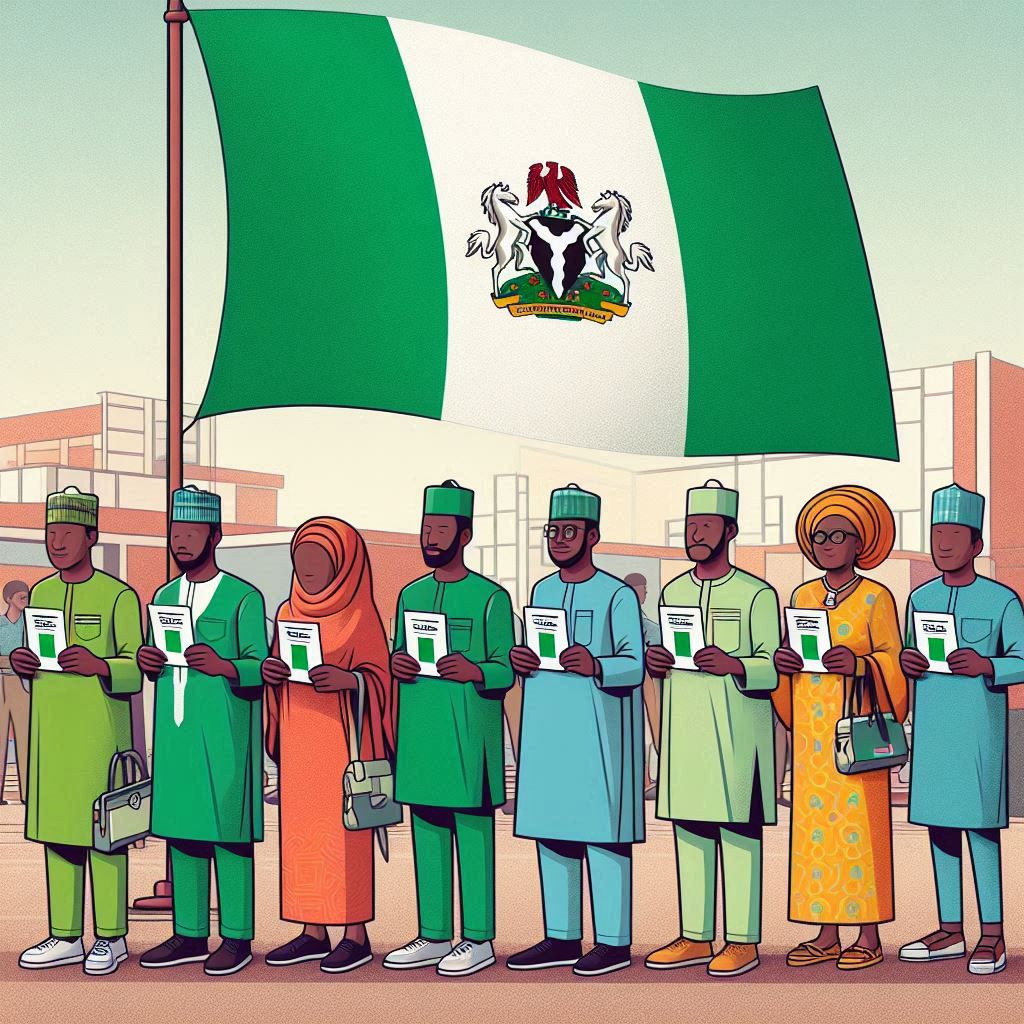
In the wake of the recent political unrest in Nigeria, digitalizing elections has become a hot topic of debate. This article delves into the pros, cons and implications of transitioning to digitalized elections for Nigeria. We will look at how this transition could affect citizens’ voting rights, the impact it could have on election security and accuracy, and the challenges that come with introducing a digital system. Join us as we explore the potential implications of digitalizing elections in Nigeria!
Introduction to Digital Elections
The world is gradually but surely going digital in every aspect, including elections. This has led to a lot of advantages as well as disadvantages. Let’s take a look at the pros, cons and implications of digitalizing elections in Nigeria.
Pros of Digitalizing elections in Nigeria
- Increased accuracy: With digital elections, there is no room for human error as everything is done electronically. This means that the results are more accurate and can be trusted.
- Increased transparency: With everything being done electronically, it is very difficult to rig an election. This leads to increased transparency and builds public trust in the electoral process.
- Increased efficiency: Digital elections are faster and more efficient than traditional paper-based elections. This means that more people can be reached in a shorter period of time and the whole process is less cumbersome.
Digitalizing elections in Nigeria has a number of potential advantages. Perhaps most importantly, it could help to reduce the incidence of electoral fraud. This is because paper ballots are much easier to manipulate than electronic ones. Furthermore, digitalizing elections could help to increase turnout by making it easier for people to vote. This is particularly relevant in a country like Nigeria, where many people live in rural areas and may not be able to get to a polling station on election day. Finally, digitalizing elections could help to speed up the counting process, which would be especially useful in a country with a large population like Nigeria.
There are, of course, some potential drawbacks to digitalizing elections in Nigeria. One is that it could disenfranchise some voters who do not have access to the internet or who are not comfortable using technology. Another is that there could be problems with the security of electronic voting systems, which might be susceptible to hacking. However, overall, the advantages of digitalizing elections in Nigeria appear to outweigh the disadvantages.
Cons of Digitalizing Elections in Nigeria
- Lack of infrastructure: In order for digital elections to be successful, there needs to be a good infrastructure in place. This includes reliable internet connectivity, enough computers and trained personnel to man the process. In many developing countries like Nigeria, this infrastructure is simply not yet in place.
- High cost: Setting up digital elections can be quite expensive. Not only do you need to invest in infrastructure, but you also need to train personnel which can add up to a significant amount of money.
- Cybersecurity risks: As everything is done electronically, there is always the risk of hacking and other cybersecurity threats.
Nigeria is a country with a very low rate of electoral participation. In the last election, only about 35% of eligible voters cast their ballots. This is due in part to the fact that Nigerian elections are notoriously corrupt and often marred by violence. Digitalizing elections in Nigeria could help to increase participation rates by making the process more transparent and accessible. However, there are also several potential drawbacks to this approach.
First, digitalizing elections could make it easier for fraud to occur. If votes are cast electronically, it would be much easier for someone to manipulate the results. Additionally, electronic voting systems are often less secure than traditional paper-based systems, making them more vulnerable to hacking and tampering.
Second, digitalizing elections could exacerbate socio-economic inequalities in Nigeria. Not everyone has access to the internet or smartphones, which would be necessary to participate in an online election. This could further marginalize groups that are already at a disadvantage in Nigerian society.
Third, there is a risk that digitalizing elections could lead to even more violence and instability in Nigeria. If the results of an election are perceived as being unfair or fraudulent, this could trigger protests and riots. Additionally, if voting is disrupted by technical problems or power outages, this could also lead to chaos and bloodshed.
Are Things Changing Only To Stay The Same?
Conversations on digitalizing elections in Nigeria have mostly been based on the upcoming 2023 elections. However, earlier off-cycle elections in Delta, Anambra, Ekiti and Osun States where technology was deployed, give insights into how these factors listed above may come into play. These cases also highlight considerations for the approaching 2023 elections in Nigeria.
To facilitate credible 2023 elections, Nigeria’s electoral body (INEC) plans to deploy an electronic device-the Bimodal Voter Accreditation System (BVAS). This system is expected to seamlessly authenticate voters and automatically upload election results to the INEC Result Viewing Portal (IReV) in real time. The use of BVAS in earlier elections since the technology was introduced in 2021, provided opportunities to test the system. However, there were challenges which call to question the effectiveness of using BVAS and IReV at scale in the upcoming elections:
- There were several reported cases of BVAS malfunctioning during by-elections in Delta state (where the system was first deployed) and gubernatorial elections in Anambra State.
- INEC reported hacking attempts on the agency’s IReV portal during governorship elections in Ekiti and Osun.
- There were seeming cases of over voting recorded in the Osun State election.
INEC recently organized mock BVAS accreditation exercises in Edo and Ondo States, to evaluate the effectiveness of the system, considering system malfunctioning in earlier elections. While this may provide a benchmark for INEC’S readiness and deliver insights into how the electoral process can be better managed using BVAS, there are some issues to be considered:
- Scale: While Nigeria has over 170,000 polling units, the mock accreditation exercises occurred in a total of 18 polling units in selected Local Government Areas across Edo and Ondo. Consequently, the results from this exercise may not adequately capture what may be expected at the scale of the 2023 governorship and presidential elections.
- The Osun Case: The Osun State gubernatorial election highlighted some important issues around BVAS and the implication of a system malfunction on election outcomes and post-electoral justice.
- Risk of Result Discrepancies: Results from the Osun State gubernatorial election were disputed on the basis of discrepancies between BVAS-collated numbers recorded on the election result form (EC8A) and the results pulled from the BVAS server at a later date. It is debatable whether this was based on errors in recording results on the EC8A or based on delays with synchronizing results on the BVAS device with results on the electoral register in real time. What is evident, however, is that the Osun case has casted doubts on the potential for the system to function hitch-free, without inaccuracies and inconsistencies in a much larger election.
- Risk of Result Disputes: The resultant election dispute led to the annulment of the governorship election by the Osun State Elections Petitions Tribunal.
- Judicial Involvement: The judgment by the elections tribunal sets a precedence for disputing election results collated by BVAS in subsequent elections. Again, it underlies the involvement of the judiciary in deciding the outcome of democratically elected elections in Nigeria, based on technicalities; which may contribute to voter apathy.
Potential Implications of Digitalizing Elections in Nigeria
Beyond the challenges that INEC has experienced with deploying BVAS, there are some positive implications for digitalizing elections in Nigeria. Foremost is the potential to increase transparency and efficiency in the electoral process. Again, a digitalized central system such as BVAS could reduce the financial and time-related costs of conducting elections by seamlessly accrediting voters and collating results in real time.
On the negative side however, digitalization could potentially enable election fraud and manipulation. Manipulation is possible because, in Nigeria, the voter accreditation process involves using the BVAS hardware devices for voters cards and fingerprint authentication. This requires working knowledge of how the device works; which creates room for deliberate or unintentional human error; which could negatively impact the election process. Again, digitalizing elections could lead to disenfranchisement of voters who do not have access to technology or who are not comfortable using it.
Nigeria is a country with a rich history of elections that date back to the colonial era. In recent years, there has been a growing trend of digitalizing elections in Nigeria; from the process of voter registration to managing the election process. While this has led to some positive outcomes, such as the potential to increase transparency and efficiency, there are also some challenges that come with digitalizing elections in Nigeria.
One of the biggest challenges facing digitalizing elections in Nigeria is the lack of infrastructure. In order to have a successful digital election, there needs to be a robust infrastructure in place. This includes accessible and reliable internet connection, adequate electricity supply, and sufficient computing resources. The BVAS software for example needs to be updated regularly and the system requires internet connection to function adequately and transmit election results in real time. Unfortunately, Nigeria currently lacks all of these things. Internet penetration remains relatively low and those who have internet access often face unreliable connections, especially in rural areas where some polling units are located. Furthermore, power outages are common across the country, which can make it difficult to use electronic voting machines.
Another challenge facing digitalizing elections in Nigeria is low awareness and understanding among the population. Many Nigerians are not familiar with how electronic voting works, which can lead to confusion and mistrust. Additionally, there is also a lack of trust in electronic voting machines themselves. This is understandable given that Nigerian elections have been marred by allegations of fraud and irregularities in the past. As such, many people are hesitant to embrace new technology that could potentially be used to rig an election.
Despite these challenges, there are still many reasons to believe that digitalizing elections in Nigeria is a step in the right direction. Here, we propose some possible solutions to overcome challenges as it relates to the forthcoming elections.
Conclusion
Digitalizing elections in Nigeria presents an opportunity to improve the electoral process and strengthen democracy through greater transparency and accountability. The introduction of digital technology can bring significant improvements, including faster counting of votes, improved accuracy and fraud prevention capabilities. However, there are still some challenges that need to be addressed such as cybersecurity threats and infrastructure issues before we can fully realize the potential of digital elections in Nigeria. Nevertheless, if these issues are properly managed, digitalizing elections in Nigeria has the potential for a more democratic future for all citizens.
Written by:
Victoria Manya and Abra Dangnan
